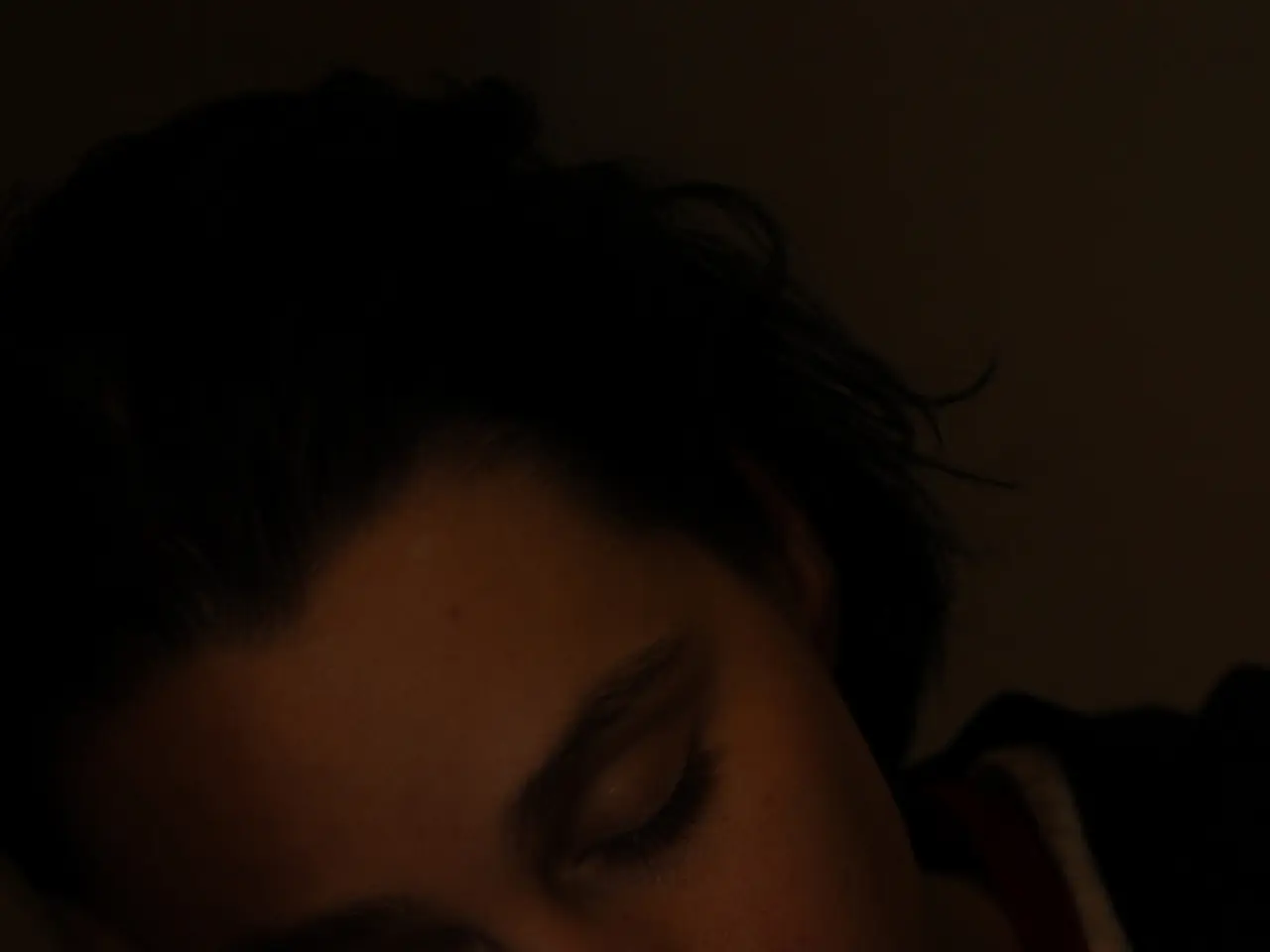Duration and origins of insomnia: an examination
Chronic and acute insomnia affect a significant portion of the global population, with estimates ranging from 10% to 50-60%. Insomnia, defined by the Diagnostic Manual of Mental Disorders Fifth Edition (DSM-V) as dissatisfaction with sleep quality or quantity, can have various causes, symptoms, and treatment methods.
Causes
Acute insomnia, which lasts less than three months, is typically triggered by temporary factors such as stress, traumatic events, or changes in sleep routine. On the other hand, chronic insomnia, lasting three months or longer, is often linked to ongoing stress, psychiatric conditions, medical issues, lifestyle factors, and medications. Older adults may have additional causes such as hormonal changes, neurological disorders, and medical conditions like arthritis, heart failure, or GERD.
Symptoms
Insomnia can manifest in several ways, including difficulty falling asleep (onset insomnia), waking up multiple times during the night (maintenance insomnia), waking too early and unable to return to sleep (terminal insomnia), and feeling unrefreshed or tired after sleep. Daytime symptoms may include daytime fatigue, sleepiness, difficulty concentrating, irritability, and mood changes, as well as physical symptoms such as tension headaches.
Treatment Methods
The most effective non-pharmacological treatment for insomnia is Cognitive Behavioral Therapy for Insomnia (CBT-I), which helps change negative thoughts and behaviors about sleep. Lifestyle and behavioral changes, such as establishing regular sleep schedules, improving sleep hygiene, managing stress, exercising regularly, and creating a relaxing bedtime routine, are also essential. Addressing underlying conditions contributing to insomnia is crucial for effective management.
Medications may be prescribed for short-term relief, but they are not recommended for long-term use due to risks and dependence potential. Alternative treatments like mental healthcare integration, homeopathic remedies, or essential oils may complement primary therapies but require further evidence.
Preventing Chronic Insomnia
By identifying and changing any of the predisposing factors, precipitating factors, and perpetuating factors, a person may prevent chronic insomnia. These factors include genetic makeup, a person's tendency to worry or excessively ruminate, irregular work hours, emergencies, trauma, relationship problems, caring for a newborn or a sick relative, physical illness, mental health conditions, neurological disorders, arthritis, hormonal problems, gastrointestinal disorders, stroke, cancer, menopausal symptoms, medication side effects, pregnancy, childbirth, caffeine, alcohol, tobacco, having a partner with sleep problems, and sleep apnea.
Impact of Insomnia
Insomnia can lead to significant consequences, including depression, accidents, impaired work performance, and overall poor quality of life. It can also cause daytime impairment such as irritability and excessive daytime sleepiness. People with long COVID, for instance, often experience insomnia, along with fatigue, depression, anxiety, shortness of breath, chest pain, variation of heart rate and blood pressure, and gastrointestinal symptoms.
The Food and Drug Administration (FDA) regulates supplements such as melatonin, which the American Academy of Family Physicians considers as the first line of treatment for insomnia. Females are more likely to have insomnia than males.
Insomnia treatment may include lifestyle changes, therapy, and medication. Non-pharmacologic treatments include sleep hygiene, sleep restriction therapy, stimulus control therapy, cognitive behavioral therapy, and relaxation techniques. Pharmacologic treatments include benzodiazepine receptor agonist drugs, antihistamines, antidepressants, anticonvulsants, melatonin receptor antagonists, and over-the-counter sleeping aids containing melatonin.
For adults, the recommended hours of sleep per night is 7 or more for those aged 18-60 years, 7-9 hours for those aged 61-64 years, and 7-8 hours for those aged 65 and above. The Centers for Disease Control and Prevention (CDC) recommends different hours of sleep per day per age group.
In some cases, insomnia symptoms can resolve on their own, but in others, they may transition from acute to chronic when a person no longer mentions a life stressor and focuses on insomnia as the problem. Approximately 25% of people in the United States experience acute insomnia every year. Surgery may cause insomnia during the first 6 nights after surgery and return to pre-operative levels within the first week.
A 2019 research uses the "3P or the Spielman model" to explain how insomnia occurs, becomes chronic, and becomes self-perpetuating. A 2018 study found a significant relationship between sexual dysfunction and sleep quality. A 2019 study found that people had increased nighttime arousal and wake time after quitting smoking, which may continue for the first weeks of quitting but will resolve within 3 months to a year after stopping.
In conclusion, acute insomnia often resolves with stress reduction and improved habits, while chronic insomnia typically requires a combination of CBT-I, addressing underlying causes, and sometimes medication for effective management.
- Sleepsupplements, such as melatonin, are regulated by the Food and Drug Administration (FDA) and are considered the first line of treatment for insomnia by the American Academy of Family Physicians.
- Mental healthcare integration, homeopathic remedies, or essential oils may aid in the treatment of insomnia and complement primary therapies, but more evidence is needed to support their efficacy.
- To prevent chronic insomnia, it's essential to identify and manage any predisposing factors, such as a genetic predisposition, lifestyle factors, or underlying medical conditions, that may contribute to insomnia.
- As part of health-and-wellness and mental-health practices, establishing a regular sleep schedule, improving sleep hygiene, managing stress, and creating a relaxing bedtime routine can all help improve sleep quality and address symptoms of insomnia.




